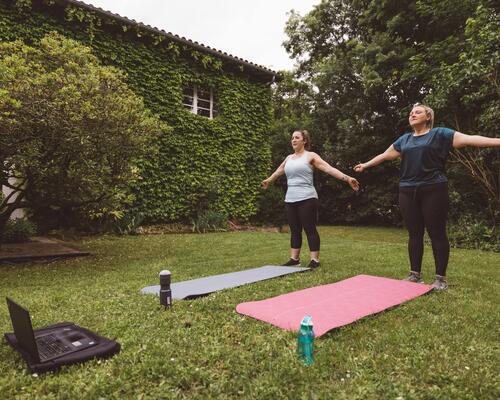Introduction: an example of a performance routine
Not sure how to introduce your performance routine? Don't worry. We athletes have got each other's backs. Here is an example of a mental performance routine, which you can adapt to your preferences, character and specific sport.
Mental imagery allows us to represent an action or gesture in our brain and fix it there. “Neuroscience has taught us that the mental visualisation of an action takes place in the same area of the brain as the physical execution of that same action, the expert explains. When I score a penalty in my mind or on the pitch, it is the same area of my brain that I use.” Mental imagery can put you one step ahead, to a certain extent.
To fix a positive image in your brain, close your eyes (giving you a degree of isolation and connection to all your senses) and imagine your series of actions. You can also take the time to imagine a great play or movement during a real match. This will be useful in the future for mental visualisation. “Training yourself to visualise a successful action or movement is just as important as executing it physically. Through mental visualisation, we can increase our potential to succeed ”, according to Karine Weber. You know what you have to do now.
Internal dialogue: those phrases which reassure you, strike a chord within you and help you raise the bar. Do you know what we mean? They are personal to each one of us. To discover your own, just ask yourself the question: when I am performing effectively, what do I feel, what do I see and what do I associate this with? What do I tell myself in my head? How does the champion inside me speak to me?
A little tip from our psychologist is to keep a notebook to record everything that stimulates us, inspires us and gets us going and test it out during your routine. “It might be a movie, a book, a piece of music or a TV programme...”.
Our expert adds that: “The brain does not understand negation. If you tell it “don't miss this serve” during a tennis match, your brain will focus its attention on “missing the serve””. So, try to use positive turns of phrase such as “I am going to get this serve in”. A little change of phrasing can make a big difference.






